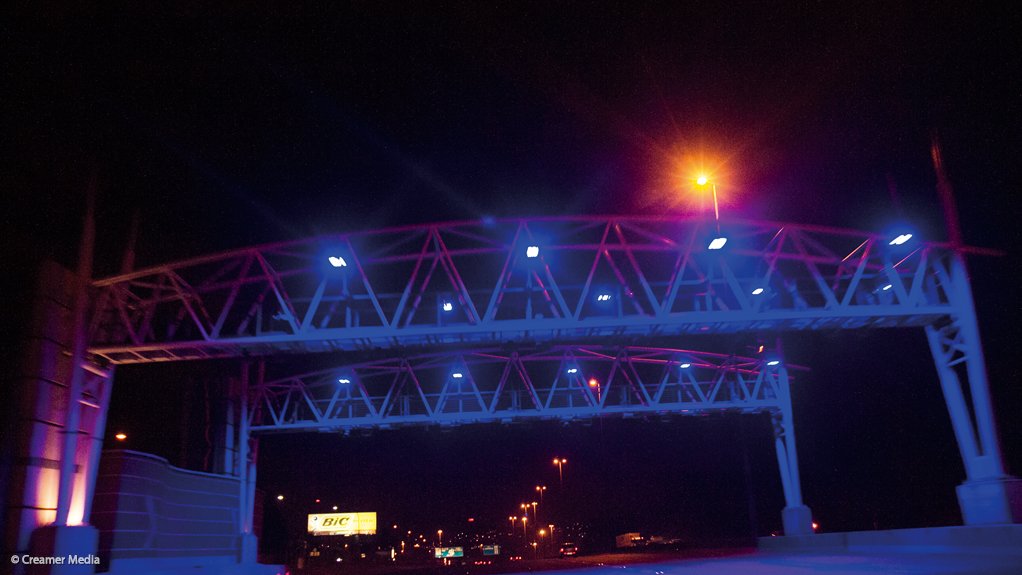/ MEDIA STATEMENT / The content on this page is not written by Polity.org.za, but is supplied by third parties. This content does not constitute news reporting by Polity.org.za.
The e-toll review panel came under fire earlier this month as the system is still layered with disparity and remains a huge concern for businesses and residents within the Gauteng region. Despite ongoing conflict surrounding the controversial multibillion-rand system, it looks as though it’s here to stay – experts share their views.
“While developing infrastructure shows an economy at work, it can – like in the case of e-tolls - have an adverse impact on business, due to the additional tariffs and tax levies,” says Adv. Fay Mukaddam, President of the Johannesburg Chamber of Commerce and Industry (JCCI). “Many businesses are very reliant on the transportation of goods and services and additional expenses in such a tight economy - where keeping operational costs as low as possible is critical – places a huge burden on businesses and is stifling growth. In fact, one of our members mentioned that their monthly travel costs had increased by R20 000 a month due to the E-toll tariffs, which is a massive additional cost to carry as a small business. And, if we consider the integral role that small businesses play in the economy in creating jobs – such an impact can have detrimental consequences on a broader scale.”
Nicolas de Canha, CEO of Imperial Fleet Management (IFM), agrees on the potentially significant burden the system poses on the region, however, having proactively developed a solution that assists IFM in administering e-tolls on behalf of their clients, he has had to take a realistic stance which sees e-tolls as here to stay. “The reality is there is a significant debt that needs to be repaid for the upgrades to highways that was undertaken ahead of the 2010 World Cup, not to mention funding that needs to be sourced for ongoing road infrastructure projects and upgrades – as we have to continue investing in transport infrastructure. It’s probably for this reason that, despite finding the e-toll system unaffordable, the review panel hasn’t called for e-tolling to be abolished. Rather in its recommendations the review panel has proposed a “hybrid” system – that still needs to be defined - though funding mechanisms may include tolling, increased licensing fees, tyre taxes, vehicle licences reviews and ring-fencing the fuel levy. This is essentially a tax – and however it is collected - it will need to be instated in order to manage the demand of infrastructure utilisation.”
Higher costs will have a ripple effect on doing business and not only will the impact be felt by big businesses, but especially by small businesses and the informal sector. “The effects of the e-toll system clearly have an impact on business development, in an economy that is already experiencing slower growth due to many additional factors including the current load shedding and the disillusionment that businesses are feeling about operating in the country due to the multitude of inefficiencies and red tape,” says Mukaddam. “Businesses and citizens are already unable to stretch their hard earned rands to cover this additional expense and some of our members feel that as we are currently paying taxes diligently, taxes should be used constructively for the maintenance of the region’s continued infrastructure development. That’s why it is critical for business and government to consult and work together to find solutions that don’t negatively impact business, but contribute to sustainable development and growth of the economy.”
The cost of infrastructure is real; the challenge is to recover the monies as efficiently as possible. “The problem is that no solution exists in isolation and there are a number of critical challenges – within and outside of Sanral – that are impeding the efficacy of this system, where Sanral has limited ability to fix all of these issues, so unfortunately their challenges will continue unabated. However, even if the system isn’t scrapped it’s still going to take Sanral and the National Government several years to implement a credible system that is less complex, more efficient and far more cost effective to run – which will in turn negate some of the burden the system is predicted to place on businesses and the public, alike, in the region,” concludes de Canha.
Issued by JCCI
EMAIL THIS ARTICLE SAVE THIS ARTICLE
To subscribe email subscriptions@creamermedia.co.za or click here
To advertise email advertising@creamermedia.co.za or click here











